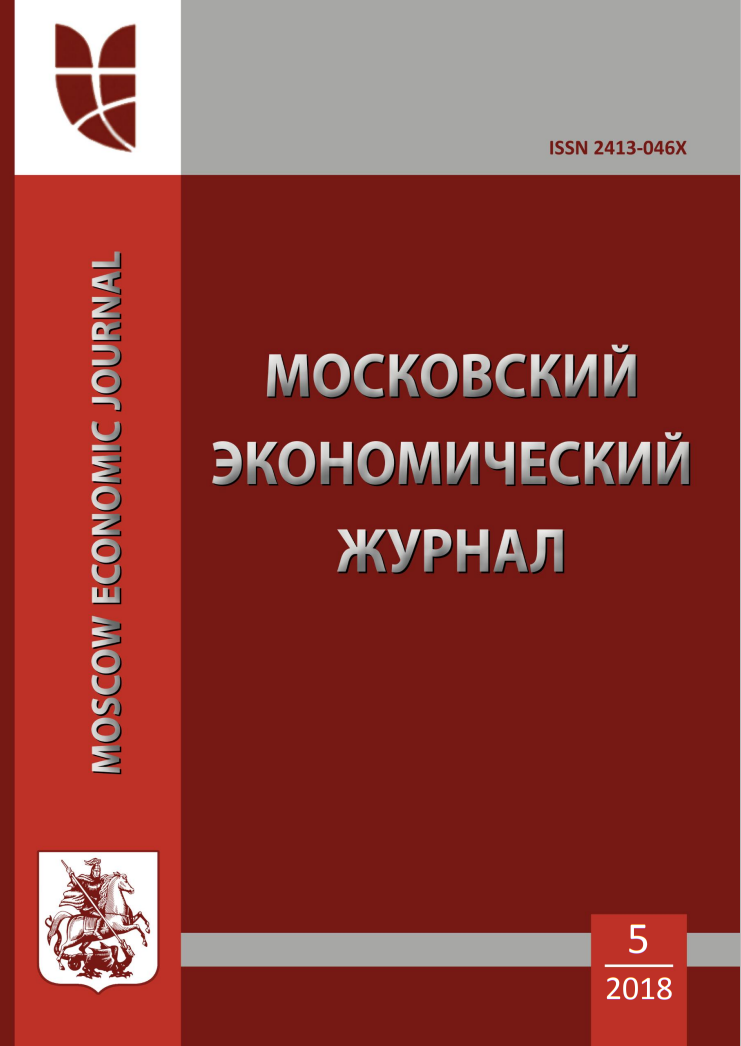Россия
В статье приведен обзор принципов цифровой экономики: оцифрованная информация, гипертрофированный рост доходности, новые модели промышленного производства. Определены отличительные черты концепции цифровой экономики от предшествующих концепций, в которых был прогресс в области электротехники, энергетики, информационных технологий, транспорта и телекоммуникаций. Рассмотрена бизнес-модель - двусторонних рынков с сетевыми эффектами. Одна сторона рынка состоит из потребителей, которые получают услугу, другая сторона - агентская, оказывающая услуги потребителям.
сетевая экономика, цифровая экономика, двухсторонние рынки
1. Буркальцева Д.Д., Гук О.А., Тюлин А.С. Развитие экономики на основе использования цифровых технологий / Проблемы информационной безопасности / Материалы IV Международной научно-практической конференции. Министерство образования и науки Российской Федерации; ФГАОУ ВО «КФУ им. В.И. Вернадского»; Институт экономики и управления; кафедра бизнес-информатики и математического моделирования. 2018. С. 7-9.
2. Цифровая экономика. Програ https://data-economy.ru
3. D'Souza C. et al. The digital economy //Bank of Canada Review. - 2017. - Т. 2017. - №. Spring. - С. 5-18.
4. John Walker S. Big data: A revolution that will transform how we live, work, and think. - 2014.
5. Hashem I. A. T. et al. The rise of “big data” on cloud computing: Review and open research issues //Information systems. - 2015. - Т. 47. - С. 98-115.
6. Athey S. The impact of machine learning on economics //The Economics of Artificial Intelligence: An Agenda. - University of Chicago Press, 2018.
7. Ashton K. et al. That ‘internet of things’ thing //RFID journal. - 2009. - Т. 22. - №. 7. - С. 97-114.
8. Gubbi J. et al. Internet of Things (IoT): A vision, architectural elements, and future directions //Future generation computer systems. - 2013. - Т. 29. - №. 7. - С. 1645-1660.
9. Stergiou C. et al. Secure integration of IoT and cloud computing //Future Generation Computer Systems. - 2018. - Т. 78. - С. 964-975.
10. Andam Z. R. e-Commerce and e-Business. - 2014.
11. Dunbar R. I. M. et al. The structure of online social networks mirrors those in the offline world //Social Networks. - 2015. - Т. 43. - С. 39-47.
12. Rochet J. C., Tirole J. Platform competition in two-sided markets //Journal of the european economic association. - 2003. - Т. 1. - №. 4. - С. 990-1029.
13. Popiel P. “Boundaryless” in the creative economy: assessing freelancing on Upwork //Critical Studies in Media Communication. - 2017. - Т. 34. - №. 3. - С. 220-233.
14. Mishel L. Despite Freelancers Union/Upwork claim, Freelancing is not becoming Americans’ Main Source of Income //Economic Policy Institute Briefing Paper. - 2015. - №. 415.
15. Gaspareniene L., Remeikiene R., Navickas V. The Concept of Digital Shadow Economy: Consumer's Attitude //Procedia Economics and Finance. - 2016. - Т. 39. - С. 502-509.
16. Brynjolfsson E. et al. The Digital Economy, GDP and Consumer Welfare: Theory and Evidence //ESCoE Conference on Economic Measurement, Bank of England. - 2018. - С. 16-17.
17. Valenduc, Gérard ; Vendramin, Patricia. Work in the digital economy:sorting the old from the new. Working papers - European Trade-Union Institute (ETUI) ; 2016.03 (2016). - 52 с.
18. Урсул, А. Д. (1975) Проблема информации в современной науке. М. : Наука.
19. Rochet J. C., Tirole J. Platform competition in two-sided markets //Journal of the European Economic Association. - 2003. - Т. 1. - №. 4. - С. 990-1029.
20. Rochet J. C., Tirole J. Two-sided markets: a progress report //The RAND journal of economics. - 2006. - Т. 37. - №. 3. - С. 645-667.
21. Eisenmann T., Parker G., Van Alstyne M. W. Strategies for two-sided markets //Harvard business review. - 2006. - Т. 84. - №. 10. - С. 92.











